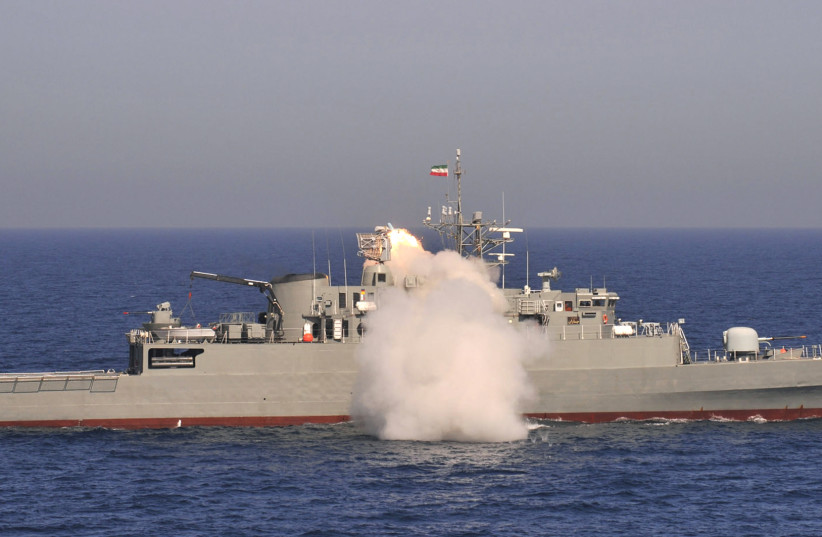Iran evacuates Hezbollah, IRGC commanders from Syria amid fears of Israeli retaliation
Reports have claimed on Wednesday that Iran is currently preparing for a potential Israeli retaliation against its territory or proxies following Tehran’s missile attack onto Israel on Sunday. As such, Iran has allegedly removed senior Hezbollah and Islamic Revolutionary Guard Corps (IRGC) from Syria.
This comes amid US and European pressure onto Israel to respond in a way that prevents further escalation following Tehran’s missile and drone attack over the weekend.
Reports citing Iranian officials said Wednesday claimed that that Iran is currently preparing its air force for potential strikes, and its navy would commence escorting Iranian commercial ships in the Red Sea.
Additionally, Tehran has initiated the evacuation of personnel from sites in Syria with a significant presence of its Islamic Revolutionary Guard Corps, according to Syrian and Iranian officials and advisers.

IRGC, Hezbollah mid-ranking officers relocating
IRGC and Hezbollah‘s mid-ranking officers are relocating from their original positions within the country to various undocumented locations, as reported by the Wall Street Journal citing Syrian security officials.
On April 8, Hezbollah chief Hassan Nasrallah has taken action alongside Iran’s aggressive stance. He affirmed Iran’s support for Hezbollah’s “resistance” and declared that the presence of the IRGC in Syria and Lebanon dates back to 1982, following Israel’s aggression towards Lebanon.
Meanwhile, Tehran has stated its intention to retaliate against any Israeli action, indicating a departure from its decades-long shadow conflict with Israel, primarily conducted through proxies, to direct engagement.
Hezbollah was on heightened alert during the Iranian attack over the weekend, expecting potential Israeli retaliation targeting its positions.
However, it has since reduced its threat level, as it believes Israel is unlikely to strike Hezbollah in Lebanon in response to Iran’s attack. Instead, Hezbollah has been advised by Iran to take precautionary measures in Syria, where Israel could target IRGC bases, warehouses, and Hezbollah posts.
Israel has asserted that it will respond to Iran’s Sunday attack, stating it’s “only a matter of how.” Israeli Prime Minister Benjamin Netanyahu claimed that “Israel has a right to defend itself” addressing the notions of a counterstrike.
Israel’s potential response could escalate its conflict with Hamas, backed by Tehran, into a wider regional war, a scenario both sides aim to avoid. However, concerns are mounting over potential misinterpretations of intentions between Israel and Iran.
To encourage Israel to limit its response, the White House announced plans on Tuesday to impose economic sanctions on Iran. These measures would target the IRGC, along with its missile and drone programs, while further sanctions may impact Iran’s oil industry and revenue generation capabilities.
Amassing international pressure against a strike on Iran, British Foreign Secretary David Cameron and German Foreign Minister Annalena Baerbock visited Israel on Wednesday to meet Netanyahu while emphasizing the need for de-escalation.
Nevertheless, US officials have express concern that an Israeli counterstrike could exacerbate regional tensions. As a result of this, they have suggested accepting an Israeli ground invasion in Rafah instead of striking Iran.





Comments are closed.